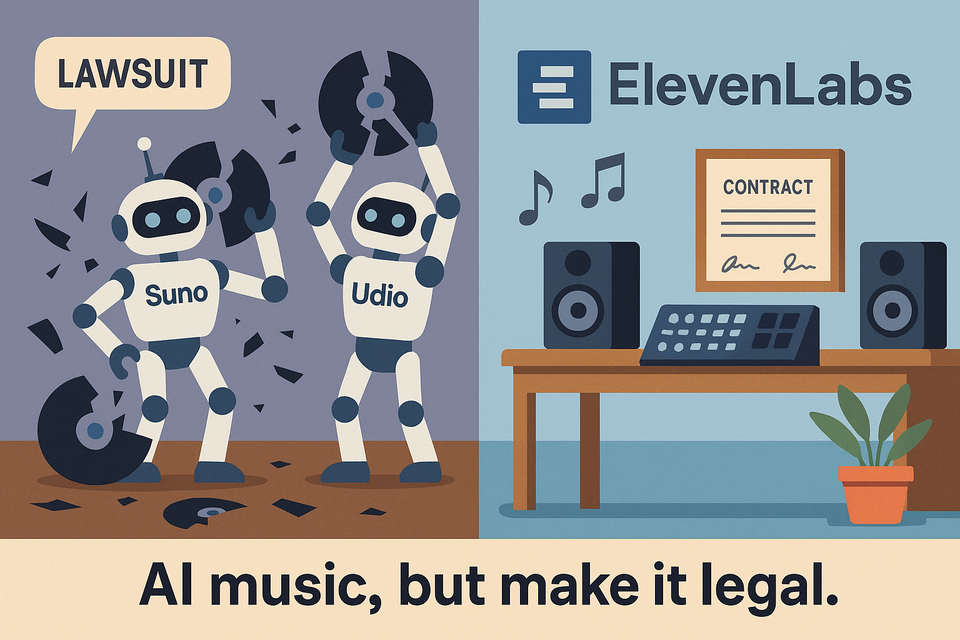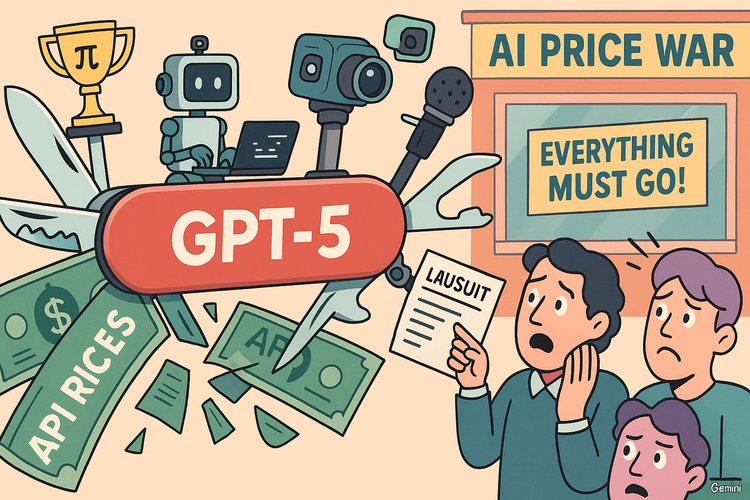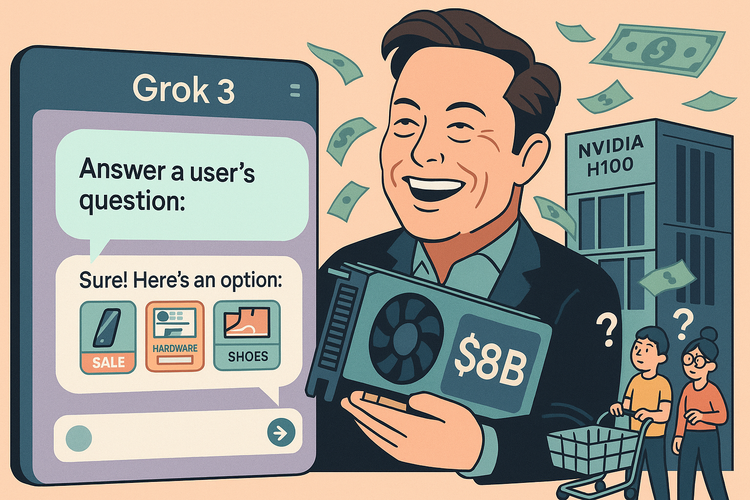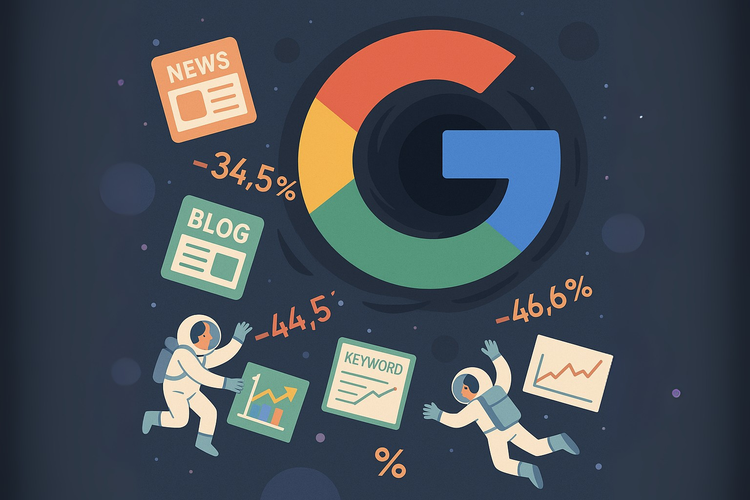ElevenLabs Just Did What Suno Couldn’t: Get Sued Less

The company launched the first licensed AI music generator. Yes, with actual contracts.
Summary
ElevenLabs launched “Eleven Music,” a text-to-song AI generator that’s not just legal-ish — it’s licensed.
By partnering with Merlin and Kobalt, they’re betting on collaboration over lawsuits.
Suno and Udio? Still trying to explain themselves in court.
Here’s what this means for the future of AI-generated music — and who gets paid.
A. The Launch That Didn’t Start With a Cease and Desist
So here’s a novel idea: What if an AI company launched a generative music product without a billion-dollar copyright lawsuit on day one?
That’s basically what ElevenLabs did. The company, best known for its voice synthesis tech, just announced Eleven Music — a tool that generates “studio-grade” music from text prompts. Any genre, any vibe, any emotional breakdown. You type, it plays.
And unlike Suno or Udio, ElevenLabs didn’t YOLO their way into label lawsuits. Instead, they walked into the music industry’s very expensive front door and said:
“Here’s a license. We’re here to pay.”
B. Follow the Copyrights (and the Money)
Let’s be clear: this isn’t about making lo-fi beats for YouTube intros.
This is about training generative models on copyrighted content, legally.
- Partners:
- Merlin Network: representing over 20,000 indie labels, including Adele, Nirvana, and Phoebe Bridgers.
- Kobalt Music Group: rights manager for Beck, Bon Iver, Childish Gambino, and others.
- Funding:
- Raised $180M in January 2025 (Series C)
- Valuation: $3.3B (up 3x in 12 months)
- Backers: Andreessen Horowitz, ICONIQ Growth
While Suno and Udio face lawsuits from Universal, Sony, and Warner for “unauthorized ingestion of copyrighted music,” ElevenLabs signed contracts. Probably long, boring ones. But that’s kind of the point.
“This partnership shows that music rights holders can negotiate with AI companies in a thoughtful and future-facing way,” said Jeremy Sirota, Merlin CEO.
Translation: “Unlike those other guys, these nerds actually called us first.”
C. Terms, Conditions, and ‘Don’t Type Drake’
The platform comes with some pretty hard guardrails, likely handcrafted by lawyers who have read every single DMCA takedown ever filed:
- No use of specific artist names
- No song titles, label names, or lyric snippets
- No mimicking famous voices
- No impersonation of artists, dead or alive
- And presumably, no “AI Tupac collab ft. AI Taylor Swift”
In other words, this is not Suno After Dark. This is AI music for grown-ups. Boring, maybe. But safe.
Which is exactly the moat ElevenLabs is building: compliance as a product feature.
D. The Bigger Picture: Permission vs Forgiveness
Let’s zoom out.
What ElevenLabs is doing isn’t just legal housekeeping. It’s a strategic inversion of how AI music has operated until now.
- Suno/Udio strategy:
“Train on everything, release fast, apologize in court.” - ElevenLabs strategy:
“Train on what you license. Make your lawyers happy. Sleep at night.”
And guess what? Labels hate being surprised. They prefer getting paid.
Even more interesting: Bloomberg reports that major labels are now in talks with Suno/Udio to cut post-hoc licensing deals — including potential equity stakes.
So... yeah. Being sued might be the new Series A.
E. Why This Isn’t Just a Product Launch
This isn’t just another AI toy launch. It’s a proof of concept for a much bigger shift:
- That AI can coexist with copyright law
- That labels can get paid without fighting in court
- That synthetic music can be “real” enough to monetize
If Eleven Music Pro (the next-gen model) delivers truly production-quality output, it could:
- Replace stock music entirely
- Become a B2B backbone for ad agencies and creators
- Offer personalized soundtracks in gaming, fitness, and film
Or — hear me out — it could just become Spotify for AI-native artists.
You know, the ones that don’t exist. Yet.
F. Takeaways (You’re Welcome)
- ElevenLabs launched a licensed AI music generator in partnership with Merlin Network and Kobalt Music.
- Unlike Suno and Udio, who are battling lawsuits from major labels, ElevenLabs took a permission-first approach.
- Their model could become the template for legal AI-generated music at scale.
- With $180M in funding and a $3.3B valuation, this is a serious play — not a tech demo.
- The upcoming Eleven Music Pro could reshape how we think about creativity, ownership, and the future of the music industry.
Sources
- TechCrunch – ElevenLabs launches an AI music generator cleared for commercial use
- Music Business Worldwide – Eleven Music launches with Merlin and Kobalt deals
- Wall Street Journal – Voice startup ElevenLabs launches AI Music Service (behind paywall)
- The Verge – ElevenLabs launches an AI music generator cleared for commercial uses



